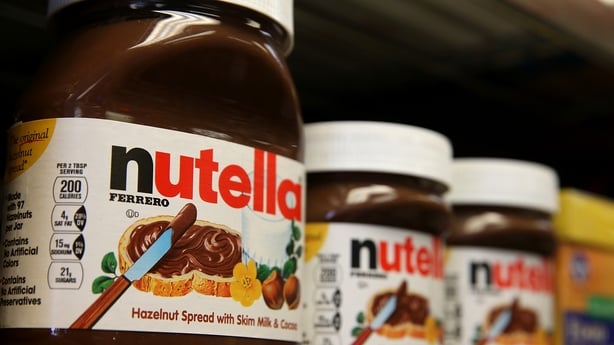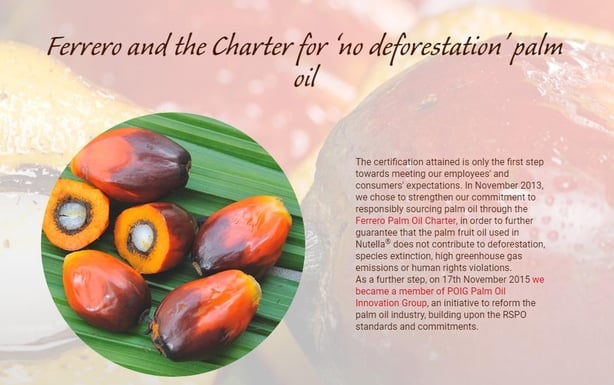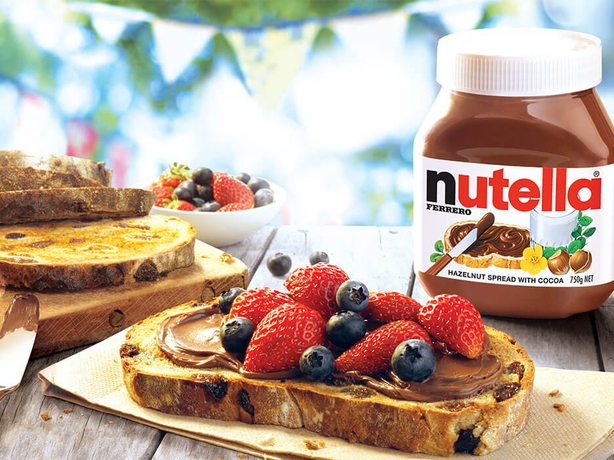Earlier this morning, police were called as riots broke out in the Intermarche supermarkets in France. The controversy? Chocolate spread.
Jars of Nutella were marked down from the usual €4.50 to just €1.41 which quickly resulted in Black-Friday style riots. Within no time, bargain hunters were clearing shelves and sparking chaos and they hunted down the hazelnut treat.
Nuts for Nutella: 70% discount leads to chaotic scenes in France
Is it worth fighting over?
Clearly, Nutella is a popular choice in both France and abroad - it even made the list of London City's Airport list of the top ten most confiscated items.
According to the site, the company chooses "only the freshest raw materials, carefully selected according to a sustainable sourcing and a great attention to their quality".
I think it's safe to say that we've all indulged in a tub or two now and again - its a popular choice for many for Pancake Tuesday (Tuesday February 13th this year). So, what's the problem?

Palm Oil
Actor Leonardo DiCaprio made a documentary with the National Geographic to explain the dangers of climate change. In Before the Flood, we learn how the use of palm oil in products, such as Nutella, is destroying forests.
"In Indonesia, we're seeing fires being intentionally set in order to create palm oil plantations which grow the cheapest vegetable oil in the world. It's in cooking oils, processed foods, in your cosmetics, in your detergents - this really cheap commodity is making companies tremendous profit," explained Lindsey Allen, Executive Director, Rainforest Action Network.
The documentary mentions numerous brands from Burger King and Walgreens to Doritos and Quaker. What is perhaps not widely know, is that Nutella also uses palm oil in its products.
The response?
In its 2016 Palm Oil Scorecard, Greenpeace identified Ferrero as one a leading company, marking their responsible sourcing as 'strong' and noting their industry reform commitment.
Ferrero joined the RSPO (Roundtable on Sustainable Palm Oil) and "have a clear goal to produce socially and environmentally-sustainable palm oil".
In 2015, the company became a member of POIG Palm Oil Innovation Group, an initiative to reform the palm oil industry, building upon the RSPO standards and commitments.

How do you eat yours?
The chocolate spread is marketed as a breakfast product suitable for the whole family. Advertisements often show children eating it on toast, pancakes, and waffles before heading off to school.
The company boasts a promise of absolutely no artificial colours or preservatives. However, on closer inspection, it turns out that a single serving of Nutella is 15g - the equivalent of one heaped teaspoon.
If we're honest with ourselves, one heaped teaspoon has been eaten straight up before a piece of wholegrain toast has even made it to the table.
Recipes
The brand claims to be "encouraging parents to ensure their children eat breakfast" so that they have energy for the day.
The website notes that children should have food they enjoy "as part of a good breakfast" and many of their recipes include healthy ingredients such as oats and raisin toast.
However, their imagery does not quite match up to their ingredient lists. Each recipe requires just "one heaped teaspoon of Nutella", but the photo below seems to have substantially more.

Ultimately, Nutella is a brand that is working on its standards of environmentally friendly products and should be enjoyed in moderation and as part of a healthy diet.
Worth going nuts over? We don't think so.







